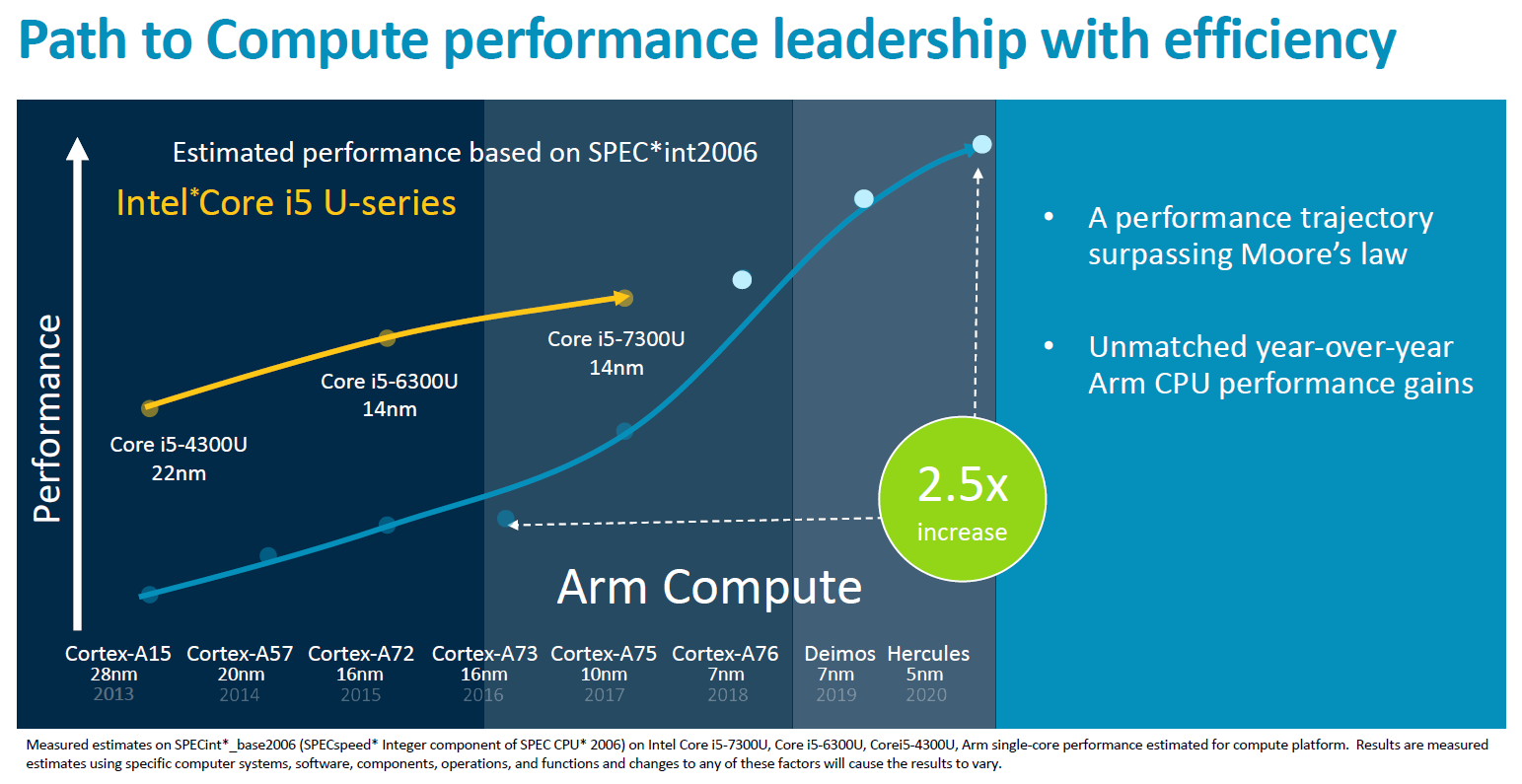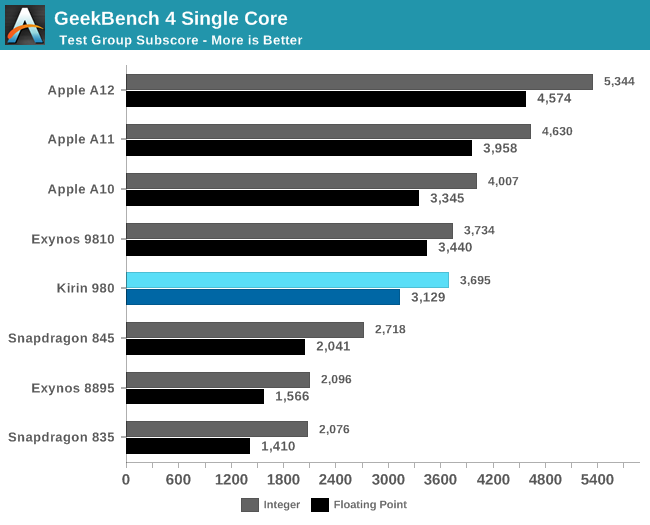Thanks for that. So, let's break it down.
First, they're talking about ARM-designed cores, while Apple is using its own designs which implement the same instruction set. So, it's a bit like the Intel/AMD situation is, for x86 CPUs. We could just stop, here, since the entire article is irrelevant to Apple's cores. However, for the sake of curiosity, let's continue.
Next, that graph is showing the
estimated performance of the A76 as slightly
surpassing an i5-7300U. Luckily, since the A76 has now been shipping for a couple years, we can lookup
actual performance data to see how it actually measured up.
This article was published almost 3 months later, and the headline pretty much says it all:
As an aside (or, really, to bring this back on-topic), check out how even the A76 stacks up against Apple's past 3 generations (A13 is their latest):
Finally, devices are now shipping with the A77, which the chart you cited shows convincingly beating the i5-7300U. Here's a brief performance analysis of it (including comparison with Apple's A13):
So, hopefully, that puts a few things in perspective.




